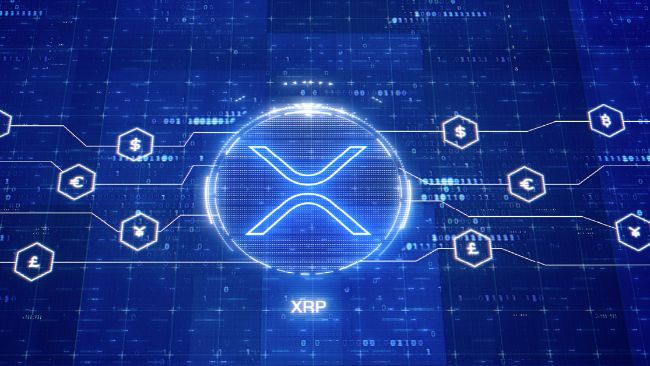After defeating the US Securities and Exchange Commission over the status of XRP, Ripple took a mysterious action. We have no intention of rushing to go public.
Instead, the company remains private. This choice says more about the volatile relationship between crypto companies and public markets than Ripple’s finances.
In July 2023, a court ruled that XRP is not a security when sold on a public exchange. The landmark victory cleared what many considered the last major hurdle before going public.
After years of litigation, Ripple has been vindicated. According to standard metrics, this was the time for startups to raise money, reward backers, explore capital markets, and go public.
But Ripple refused. The company acknowledged this month that it has “no plans or timelines” for an IPO. President Monica Long emphasized that Ripple has approximately $500 million in funding and a private valuation of nearly $40 billion. She believes that Ripple doesn’t need a public market to grow.
This choice sets Ripple apart from other crypto companies that have paid a price to go public.
Lessons learned from Coinbase, Robinhood, and IPOs.
Coinbase’s direct listing in 2021 was seen as a milestone for cryptocurrencies. For a while, it seemed like a success. But even as the broader cryptocurrency market gained momentum in 2025, Coinbase stock lagged, falling about 30% earlier this year. This disconnect raises questions about the public market’s ability to value crypto-native companies.
Robinhood, a major US cryptocurrency trading platform, faced similar problems. Stock prices were not stable during the 2021 IPO. Performance deteriorated due to market cycles, poor trading and regulatory issues. Both companies attracted attention in the short term, but were unstable in the long term.
Ripple avoids this by choosing to remain private. Staying away from the public markets protects them from volatility in returns and pressure from stock investors new to cryptocurrencies.
The quarterly treadmill is tough, even for established companies. Cryptocurrency companies with volatile revenues and regulatory constraints are particularly at risk.
Ripple also holds a large amount of XRP and relies heavily on its ecosystem. As seen elsewhere, listings can cause tensions between token holders and equity investors.
Stockholders may force Ripple to monetize its XRP reserves or change its value proposition. Remaining private maintains flexibility and protects token management from public scrutiny.
Regulatory uncertainty remains. Although Ripple won against the SEC, the broader regulatory battle continues. The SEC is pursuing other crypto cases, but Congress lacks a uniform law. Going public can mean more disclosure and regulatory oversight. Keeping it private gives Ripple room to maneuver.
Most importantly, Ripple does not require funding. A $500 million raise at a $40 billion valuation means there will be no liquidity crunch. Private capital allows Ripple to scale without involving public investors or changing internal governance.
Serious tensions between crypto and public markets
Ripple’s hesitation exposes the uncomfortable truth that public markets are not built for crypto-native companies. Traditional investors want predictable returns, stable profits, and regulatory clarity. Cryptocurrency companies ride volatile cycles, employ complex tokenomics, and operate in a shifting legal landscape.
This mismatch is important. Even if core growth is strong, public markets penalize companies when trading declines or regulations loom. Cryptocurrency companies are not rewarded on fundamentals like technology companies. Instead, it reacts to market sentiment and the price of the token.
This means that a company’s core business, such as enterprise blockchain services, custodial infrastructure, and cross-border payments, can be overshadowed by token fluctuations or policy changes. In a private setting, these risks are easier to manage. In public, they are often magnified or misunderstood.
Expectations from token holders add complexity. Cryptocurrency users often act like shareholders without owning any shares. They request updates, engage with projects, and challenge perceived discrepancies.
Going public could force Ripple to strike a balance between the stock market and the token community, a rare feat that few companies have ever managed to pull off.
Ripple’s move is a deliberate delay, not a withdrawal. Once listed, things must change: clearer regulations, more informed investors, and a stable macro environment. By keeping it private until then, Ripple will be able to control its direction.
The industry’s conclusion is clear. Listing is not guaranteed. Cryptocurrency companies must weigh timing, governance, and brand. Unconventional metrics and active communities make listing even higher.
Ripple won the SEC. However, the battle for mainstream legitimacy and scalability remains. Avoiding Wall Street for now may prove to be a wise move.








